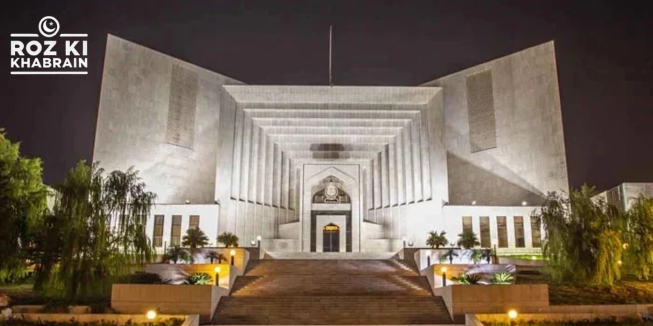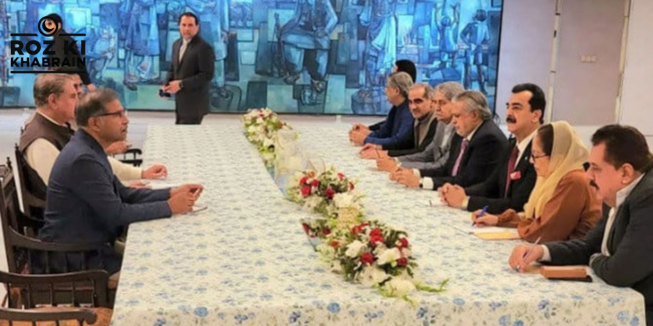The Supreme Court’s Constitutional Bench (CB) has granted military courts the authority to issue verdicts in cases involving 85 civilians. However, the implementation of these rulings will depend on the outcome of an ongoing constitutional case.
Chaired by Justice Aminuddin Khan, the bench also included Justices Jamal Khan Mandokhail, Muhammad Ali Mazhar, Syed Hasan Azhar Rizvi, Naeem Akhtar Afghan, Musarrat Hilali, and Shahid Bilal Hassan, as reported by Express News on Friday. The bench convened to hear intra-court appeals challenging the jurisdiction of military courts.
At the start of proceedings, Justice Aminuddin Khan clarified that the session would exclusively address the military court case. Justice Jamal Khan Mandokhail raised a critical question, asking, “Can amendments to the Army Act bring all individuals under its scope?”
Discussions also explored the Army Act’s historical context, predating the 1973 Constitution, with Justice Muhammad Ali Mazhar seeking clarity on past rulings that invalidated sections of the Act.
Judicial Concerns and May 9 Incidents
During the session, Khawaja Haris, representing the Ministry of Defence, criticized earlier judicial interpretations. Justice Mandokhail cautioned against undermining judicial integrity, stating, “Judicial decisions must not be demeaned as flawed.” Haris later apologized for his remarks.
Justice Mazhar requested detailed accounts of the May 9 incidents, including the alleged ransacking of the Corps Commander’s residence, urging clarity on whether the case is confined to this event. The Additional Attorney General (AAG) provided new details, promising to submit them formally in a petition.
Debates Over the Army Act
The bench also examined the implications of invalidated Army Act provisions. Justice Musarrat Hilali questioned trials conducted under sections voided before May 9. Haris argued that rulings under such provisions are usually upheld, but Justice Hilali countered, calling it discriminatory.
Justice Mandokhail noted that military personnel voluntarily accept the Army Act’s rules, prioritizing discipline over fundamental rights. “The Army Act was crafted for military governance, not civilian trials,” he added.
Conditional Verdicts and Future Proceedings
The court ruled that individuals eligible for leniency should be released, while others would remain in custody. Verdicts issued by military courts will proceed, but their enforcement depends on the Supreme Court’s pending decision.
Justice Aminuddin Khan expressed optimism about resolving the case by January, allowing the court to address other pressing issues, including challenges to the 26th Constitutional Amendment. The hearing was adjourned until after the winter recess.




